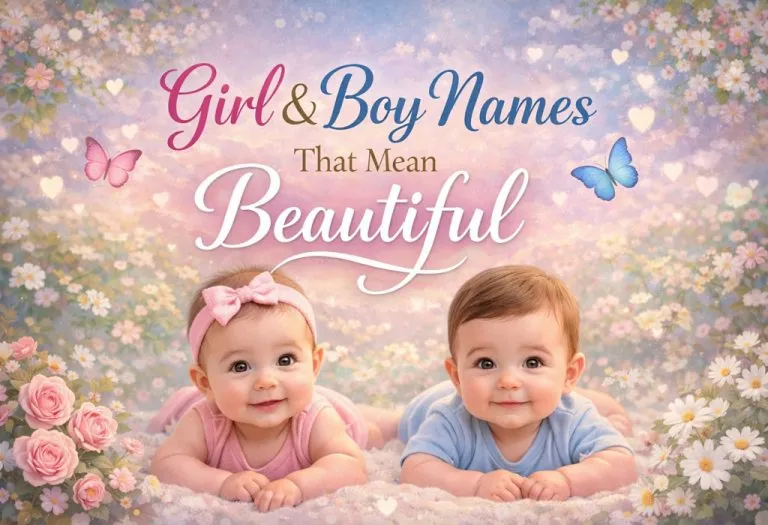What Do Babies Dream About and When Do They Start?
- Do Babies Dream?
- Do Babies Dream More Than Adults?
- When Do Babies Start Dreaming?
- What Do Newborns Dream About?
- Possible Signs Your Baby Is Dreaming
- Do Babies Have Nightmares?
- Does Dreamless Sleep Actually Help Your Baby’s Development?
- FAQs
There is a chance you did not notice this, but your baby sleeps a lot during the first months. A one-week-old baby will sleep for 16 hours a day, and even after 12 months, the baby will sleep for 13 hours. During this time, do infants dream? Yes, she will definitely be dreaming a lot! Many experts point out that dreams must happen since babies spend a lot of time in REM sleep,p as the capacity for dreaming is there. There are others who think that we cannot compare the baby’s REM totals to an adult’s. Most of the growth and development experienced by the baby during the early years of his life happens during sleep. So during REM sleep, the brain is occupied with developing new neural pathways, and due to this, there is very little power left over for dreaming. This can also cause sleep regressions.
Do Babies Dream?
Can babies dream? It is quite difficult to learn whether babies dream. It is known that most adult dreaming takes place during REM (rapid eye movement) sleep. The Sleep Foundation states that newborn babies spend about 50% of their sleep time in REM, which is more than double the amount of time adults experience REM sleep (1). However, several neuroscientists believe that babies spending half of their sleep in the REM state serve a different purpose than dreaming. It has to be related to their brain development, as they spend most of their time in this stage of sleep. When babies are in the REM sleep stage, their brain develops pathways and build cognitive function.
Studies conducted in sleep laboratories show that dreaming is not present even up to preschool age (2). Researchers suggest that this is due to the fact that young children lack the ability to form conscious mental images that they can remember later.
Do Babies Dream More Than Adults?
Each one of us goes through sleep cycles. That stage when we first start to fall asleep is called the light sleep. At this stage, it is easier for us to wake up. After this stage, we move into a deeper sleep where the brain rests and recovers. Then we go back up to the light sleep again. This sleep cycle will take about 90 minutes. Dr Alan Greene, professor of Paediatrics at Stanford University, explains that even babies need to sleep in order to restore their bodies and brains. But the babies’ sleep cycles are shorter compared to adults, and they move from light to deep sleep every 50 minutes.
Dreams happen in the light sleep, and since babies have more periods of this light sleep, they tend to dream more than adults.
When Do Babies Start Dreaming?
The answer to the question, “When do infants dream?” or “When do babies start to dream?” is not straightforward. There are several factors that influence the baby’s dreams.
Many believe that babies start dreaming in the womb. Ultrasound results have shown that the REM sleep of babies resembles that of adults, which is basically the sleep phase during which dreams occur in older children and adults. Additional research has indicated that the brainwave activity of a fetus in the womb is similar to that seen during REM sleep.
While some studies suggest that babies begin to dream soon after they are born, as they spend half of their sleep in REM, others conclude that babies could potentially begin dreaming as early as six months of age. Nevertheless, it is usually around the age of two that toddlers begin to articulate their dreams. Nightmares tend to become more common between the ages of three and twelve.
What Do Newborns Dream About?
We don’t know for certain what newborns dream about since there is no way of asking them, but according to Professor Greene, dreams do help babies make sense of their experiences. We all know that when the baby is in the womb, she can hear and smell, and even during this time in the womb, she processes her amniotic world and tries to make sense of most of it. Even after the baby is born, these processes are still carried out since everything around her is new and overwhelming.
David Foulkes’ research in the 1970s on children and dreams discovered that dreams of preschool-aged children primarily featured static images with minimal or no movement (3).
Dr Greene also explains that even if we do not know what she is dreaming about, we can still have some clues about what kind of dreams she is having. You can figure this out by the way your baby wakes up, either smiling or crying. So, what do babies dream about when they smile? If the baby is happy and smiling, then she probably dreamed about something good. And what do babies dream about when they cry? If she’s crying and making a lot of fuss, then she must have experienced some less happy dreams.
Possible Signs Your Baby Is Dreaming
There is nothing more innocent and peaceful than looking at your baby sleeping. There are three major signs your baby is dreaming, and these might leave you standing over her crib:
1. Twitching
Have you ever seen your baby twitch while sleeping? At the University of Iowa, scientists believe that these small movements show which physical skill your baby is currently working on. This means that if you notice your baby twitching her neck, then she will probably start supporting her head when she wakes up.
2. Smiling
During her sleep, if you ever see your baby spontaneously smile even in the first month, then she is probably enjoying that spot of her dreaming during REM sleep.
3. Eye Movement
If you notice her eyes move rapidly beneath the eyelids, then it is certain that she is dreaming. Scientists at Tel Aviv University found out that when the scenes in our dreams keep changing, our eyes start flickering rapidly back and forth when we sleep.
Do Babies Have Nightmares?
Dr Greene believes that nightmares mostly tend to occur in children between the ages of three and six. This is because by this age, the imaginations of children take off and they are able to think about things that they have not, in reality, sensed themselves. They also start developing a sense of fear by this age.
Nightmares often peak between 3 and 12 years of age. Children may have trouble falling back asleep. In such cases, the best response is to comfort them. Night terrors, on the other hand, occur most often in toddlers and preschoolers and occur during the deepest stages of sleep (4).
One of the best things you can do to help your children with nightmares is to let them process those dreams, since bad dreams and nightmares help them make sense of things they are frightened or anxious about. When they are old enough, you can ask them to draw pictures of the bad dreams or nightmares they are having and let them tell you what happened when they are old enough. At the end of their story, you can encourage them to discover and look for a more positive aspect.
It is important to remember that every dream your kid has, whether good or bad, serves a purpose in the growth of your kid. Dreams help them make sense of the world around them.
Does Dreamless Sleep Actually Help Your Baby’s Development?
Many experts believe that when REM sleep is dreamless, it helps newborns in many ways. It allows them to build pathways in their brain, integrate the neurological systems and even help in developing several other skills like language.
Sleep is very important for your newborn’s development because when your baby is asleep, his brain development is being fueled.
However, it is believed that dreams start taking shape as we grow up. Therefore, when the baby grows up, he absorbs and processes visuals as dreaming becomes a cognitive process.
FAQs
1. Do babies wake frequently in the early months due to dreams?
No, babies don’t wake up frequently in the infancy period because of dreams, but because of their underdeveloped circadian rhythm, and they need to eat as they can easily digest the breast milk.
2. What does a 2-month-old baby dream about?
There’s no particular way to learn what 2-month-old babies dream about. Some researchers believe that babies can dream about or reminisce about their experience in the womb, while others are sure that babies’ brains aren’t developed enough to dream yet.
3. What do babies dream about when they cry?
Babies usually cry because of hunger or to show any kind of discomfort happening to them while sleeping, not particularly because of a dream. Since babies sleep often and more in the beginning of their infancy period, sleep and cries will happen close together. Your little one may wake up crying due to hunger.
4. Why do babies move so much while sleeping?
Newborn babies often move while they sleep because of their startle reflex, which peaks around 1 month and starts to go away after 2 months, eventually disappearing (5).
If you believe that babies do dream, the real question is what they might be dreaming about. Among adults, we would mostly agree that most of us dream about the things we experience every day, or the past events or stuff we have read or heard about. So if we think with that logic with babies, they would probably dream about a lot of pooping, or crying. When the baby grows up, she will start becoming aware of her surroundings and maybe dream about her mom and dad or even her family dog.
References/Resources:
1. Sleep Foundation – How Your Baby’s Sleep Cycle Differs From Your Own
3. Frontiers in Psychology – Content analysis of 4 to 8 year-old children’s dream reports
5. American Academy of Pediatrics – Newborn Reflexes
Also Read:
Babies Smile in Sleep
Baby Sleeps with Open Eyes
Baby Sleep with Open Mouth
Why Do Baby Frequently Waking Up?
Was This Article Helpful?
Parenting is a huge responsibility, for you as a caregiver, but also for us as a parenting content platform. We understand that and take our responsibility of creating credible content seriously. FirstCry Parenting articles are written and published only after extensive research using factually sound references to deliver quality content that is accurate, validated by experts, and completely reliable. To understand how we go about creating content that is credible, read our editorial policy here.






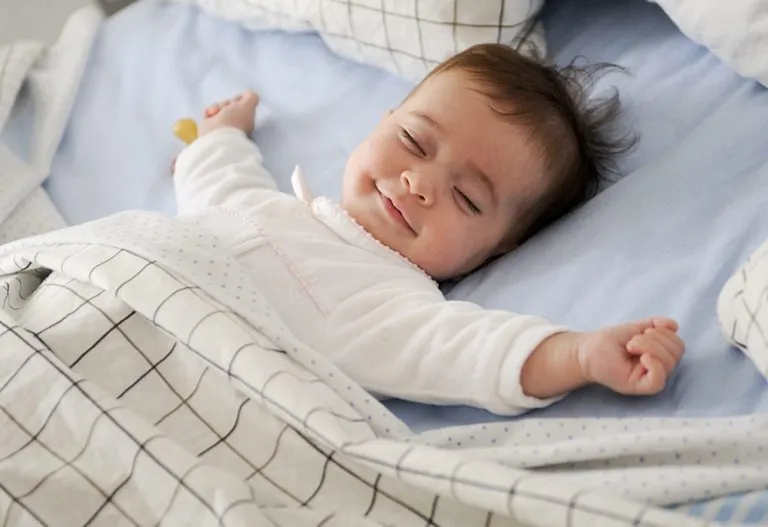






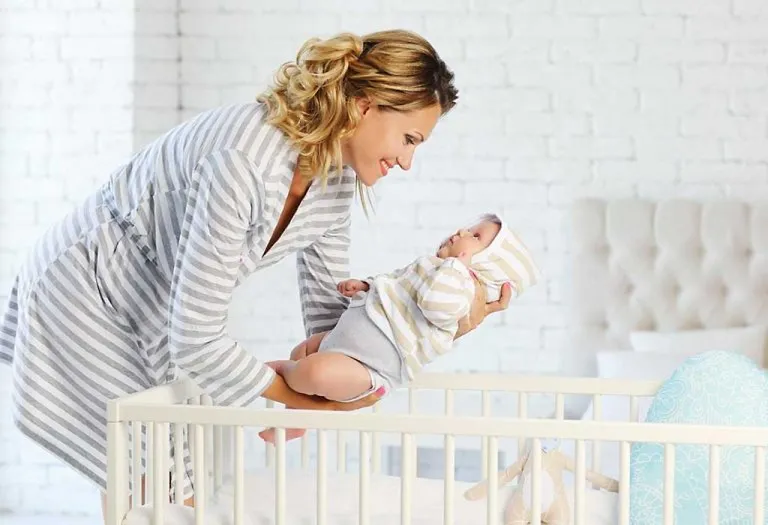
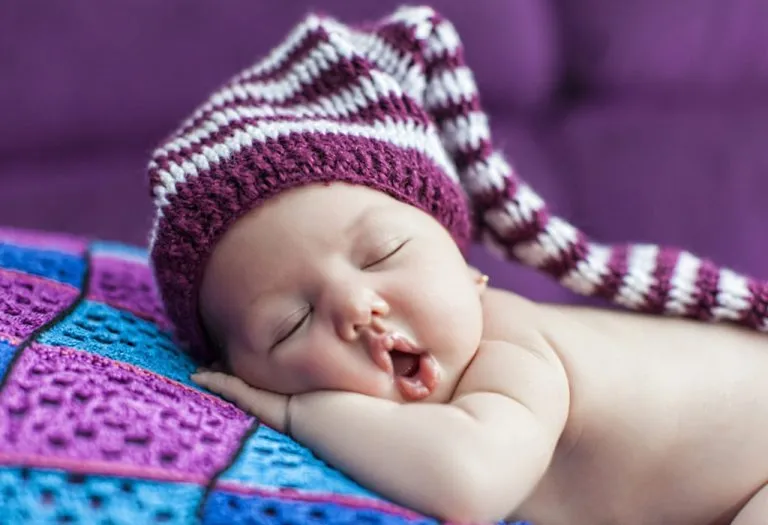
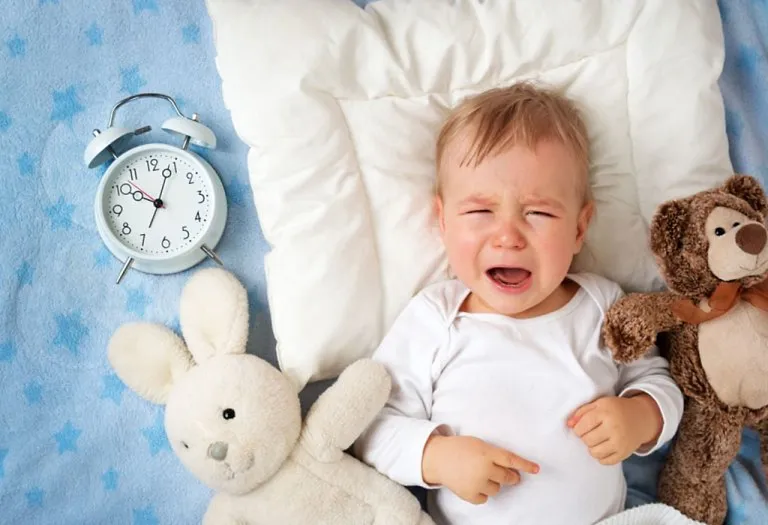
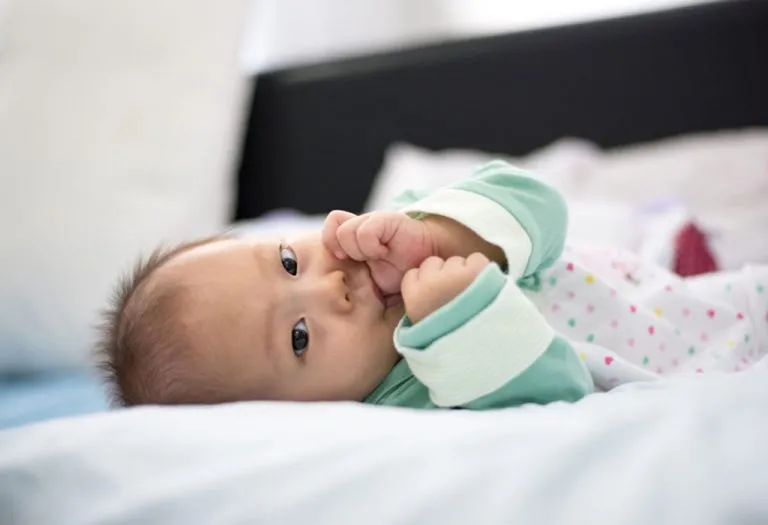
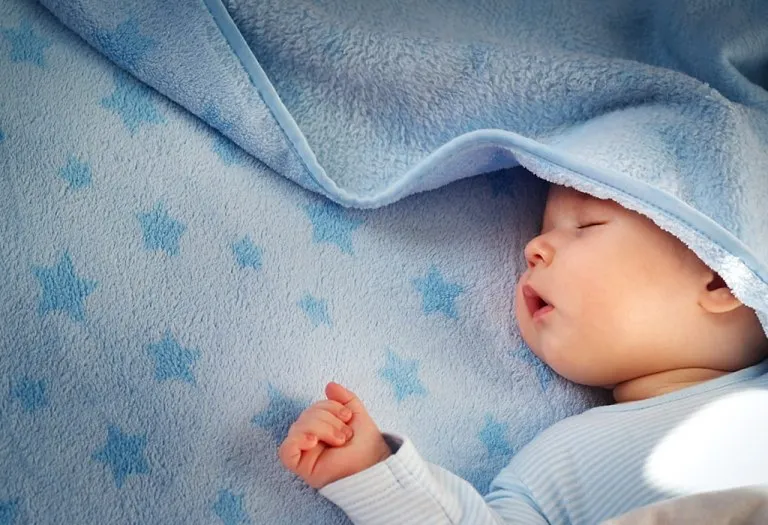
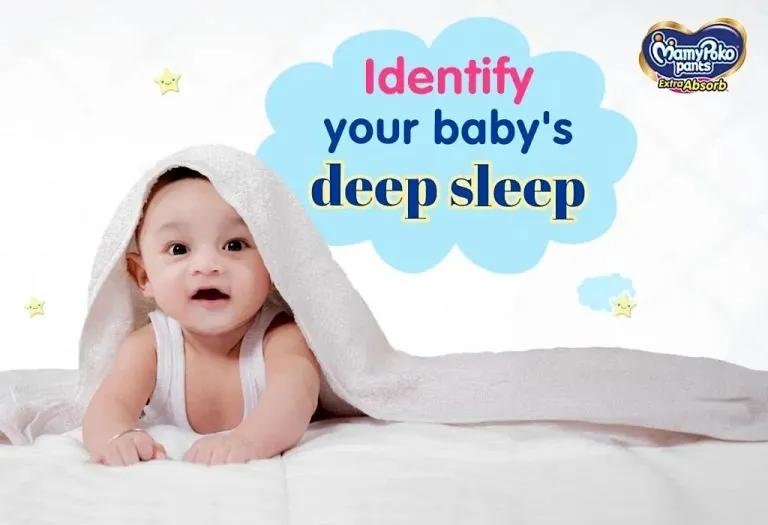

.svg)











